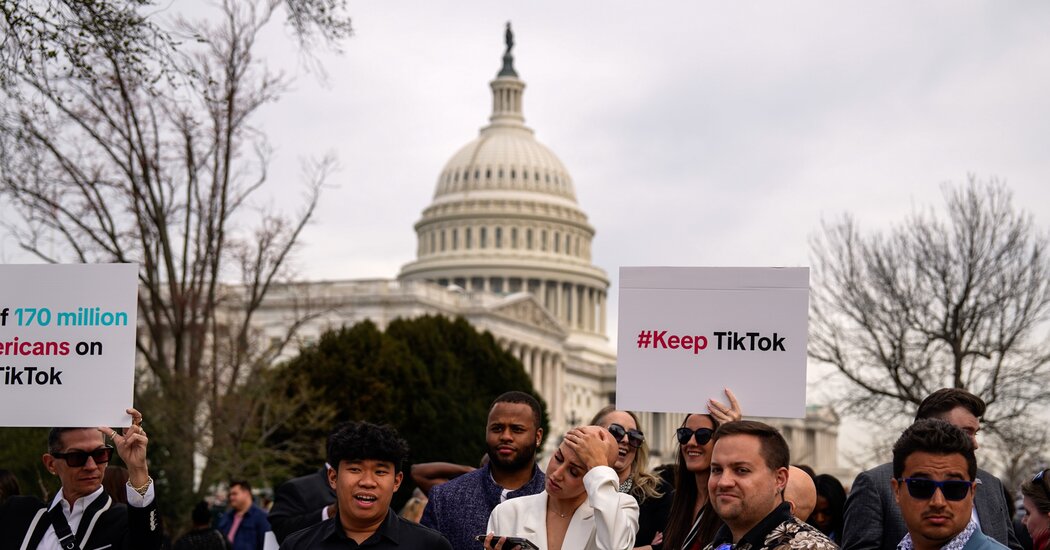As legislation moves ahead that could eventually mandate a sale by the Chinese parent company ByteDance, hurdles include finding buyers.
Legislation that could eventually mandate a sale of TikTok is moving forward. But any kind of divestiture by its Chinese parent company, ByteDance, is likely to prove challenging.
The House on Wednesday approved the bill to ban TikTok unless ByteDance sells the app to a buyer the government signs off on. The bill would still need to pass the Senate and be signed into law by the president. Assuming that happens, however, the options for potential buyers would be extremely limited, a potential spinoff presents many difficulties, and the Chinese government or U.S. regulators could try to block any of those options.
Here’s what to know.
What kind of sale is required under the bill?
To avoid a ban, ByteDance would have to arrange a sale that guaranteed TikTok was not under the control of a foreign adversary — a group that includes China — within six months. ByteDance could not maintain any relationship with the newly independent app or control over its algorithm, which sends users a scrolling feed of videos catered to their interests.
Under the legislation, the president will need to agree that the sale meets those conditions.
What, exactly, would be put up for sale?
ByteDance and TikTok have not said how they would handle a sale, if it’s required. But legal experts say that in the case of a sale, ByteDance would likely need to decide between selling all of TikTok globally versus trying to cordon off its U.S. business.
ByteDance wouldn’t be allowed to have any connection to TikTok going forward. So it’s unclear if it would even be possible to break off its U.S. operations to comply with the legislation while still allowing that American version of the app to use ByteDance’s algorithm and talk to TikTok users in other countries.
